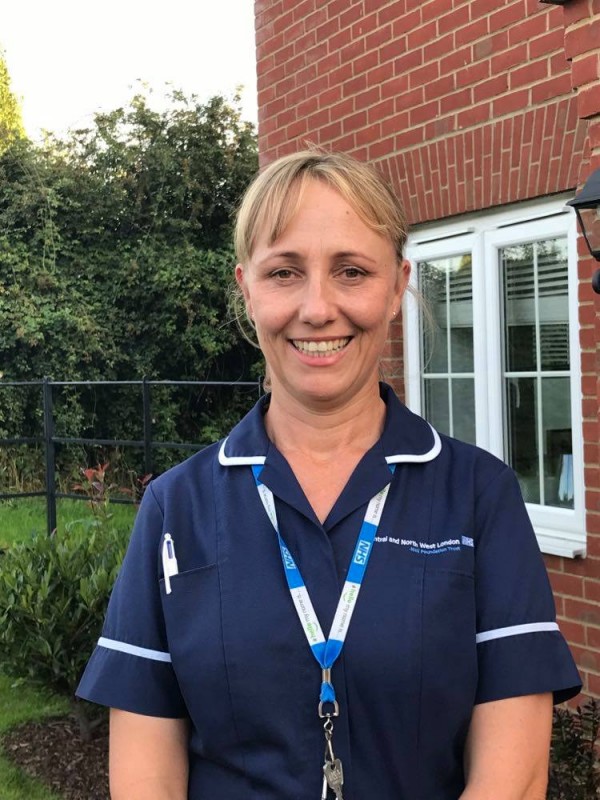Northland Nurse Nursing through COVID-19 in the UK
When former Northland DHB district nurse Roxane Keynes relocated to the UK with her English husband and their three children in 2016, she didn’t realise how important her skills would become fighting a global pandemic just four years later.
Roxane worked as a nurse practitioner during the pandemic with her community admission avoidance team - Home 1st Rapid Response. The nurse-led team, comprised of senior nurses, nurse practitioners, advanced nurse practitioners, and two nurse associates, is almost all trained in advanced assessment skills and can use medication under a Patient Group Directive or prescription from prescribers.
They were among the thousands of essential workers worldwide working around the clock to support patients and their whānau afflicted with the often-deadly virus.
Roxane completed a Bachelor of Health Science (Nursing) degree in 2000. Then worked at Whangārei Hospital before heading off on her OE and starting her career in community nursing in London.
In 2005, she returned home to New Zealand with her partner and worked as a district nurse off and on for the next ten years.
They returned to the UK in 2016 to spend time with her husband's family, and she started working for Home 1st Rapid Response.
When comparing working in New Zealand and the UK, she thought the main difference was the variations in the implementation and availability of treatment. She believes the rural landscape of New Zealand could pose challenges for many trying to access healthcare services. And, although you have to pay for prescriptions in the UK, healthcare is free.
However, like New Zealand, accessing a GP for a routine or same-day appointment can prove challenging. She said that the pay level in New Zealand was better, but the cost of living is more, and in the UK, there are more opportunities for training and development with access to specialised roles.
She was offered the opportunity to complete a semester in advanced assessment at Kings College, which was essential to her job.
Referrals to her team are by clinician only. A triage process is undertaken to check the suitability of referral to ensure safety as there is a two-hour window for the nurse to visit. Most of her work is with the deteriorating patient, support of district nurse tasks out of hours and in addition, end of life support at night as this is a 24 hours service.
When COVID-19 hit the UK, Roxane said she wore PPE at all times, including in the office, and they continue to be vigilant with PPE and swabbing where there is a need today.
"At the height of the pandemic, the biggest struggle for me was the frequent discussions with families about the deterioration of their loved one due to COVID-19 and putting an end of life care in place because they would not be suitable for hospital admission or likely to survive."
She worried about passing the virus to her family members, particularly her mother in law who was having chemotherapy and had a strict decontamination process on arrival home via the back door/wash house.
However, in January 2021, she did contract COVID-19. She said it was frightening because she didn't know how she would respond to the virus and worried about her long-term recovery. After passing it on to her three children, she said she became acutely aware of how easily the virus was transmitted. She believes about 40 percent of her team also got COVID-19.
Thanks to the UK's successful vaccine rollout (89 percent of the population have had their first dose, and 75 percent have had both), Roxane said they have been able to lift restrictions and cautiously get back to some normality.
"There was a period where we didn't see any COVID-19 patients. Numbers have started to increase again but not at the rate during the peak. There is less serious illness and pressure on the critical beds in hospitals."
While her workload has resumed to business as usual, she said their patients have more complex needs because many have isolated for a long time and have not seen a GP or attended hospital appointments.
"As a team, we have needed to regroup following this second wave of COVID-19. The patients we see are now more complex. We have had to look at new ways of delivering our service and re-establishing our team back with providers we had not had much contact with during the pandemic due to COVID-19 restrictions.”
After seeing the first-hand transmission of COVID-19 from a healthy family member to a vulnerable relative, which can have a devastating and lasting impact, Roxane implores New Zealanders to be vaccinated.

Roxane Keynes
"Be prepared. With COVID-19, there have been so many unknown variables, and on reflection, sometimes here, it's felt too little, too late. New Zealand is in an advantageous situation where you have done a good job keeping the virus out of the country and have time to keep your people and health service safe."
Last modified:
